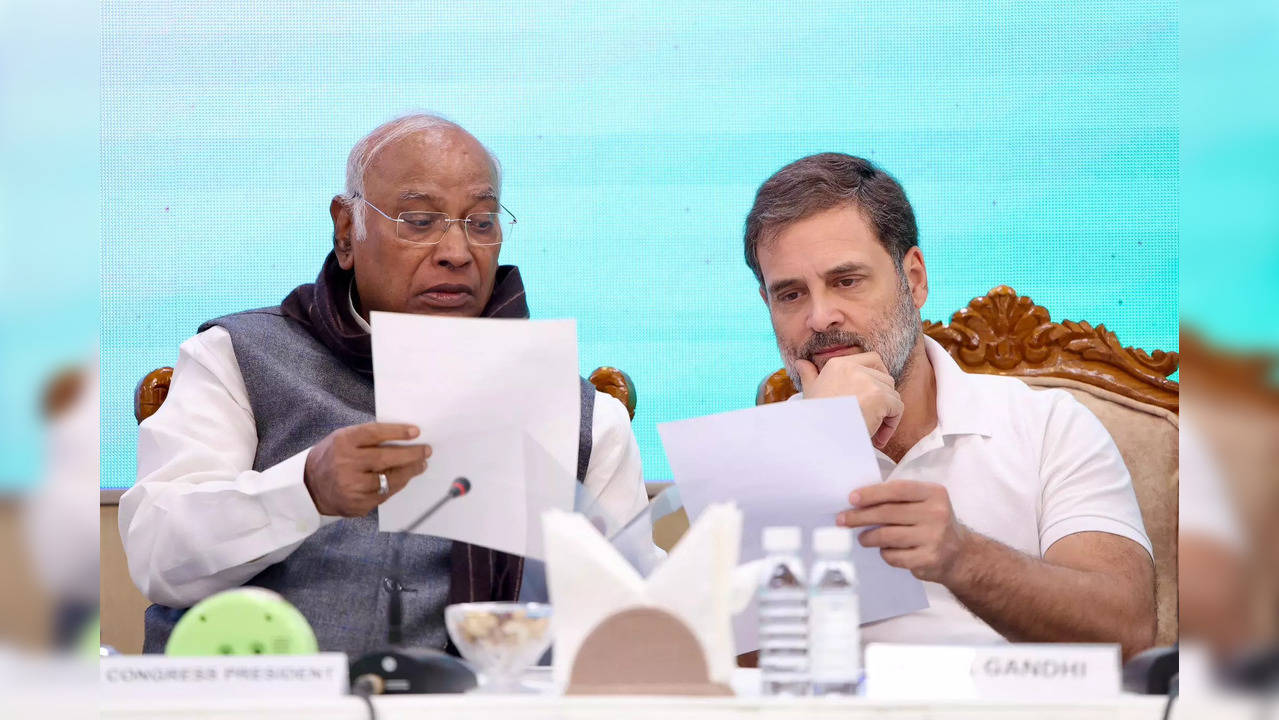 |
|
The Indian National Congress (INC) has lodged a formal complaint with the Election Commission of India (ECI) regarding alleged irregularities in the recent Maharashtra assembly elections. Their concerns center around significant discrepancies in voter turnout figures and manipulations of the electoral rolls. The INC alleges a substantial number of voters were arbitrarily deleted from the electoral rolls in the months leading up to the election, while a similarly large number were added, resulting in an estimated 47 lakh new voters between July and November 2024. This, they claim, was a deliberate attempt to influence the election results in favor of the ruling Bharatiya Janata Party (BJP)-led Mahayuti alliance. The party points to the fact that in 47 out of 50 constituencies where a significant increase in voters was observed, the BJP-led alliance secured victory, as compelling evidence of manipulation. They contend that despite raising this issue with the ECI in October 2024, no meaningful action was taken prior to the elections.
The Congress delegation, led by prominent figures including Maharashtra chief Nana Patole, Mukul Wasnik, and Jairam Ramesh, submitted a detailed 12-page memorandum to the ECI outlining their concerns. The memorandum highlights what the party considers to be 'grave inconsistencies' in the election process, specifically focusing on the sharp increase in voter turnout figures reported between 5:30 PM and 11:30 PM on election day. They suggest that this significant jump raises serious questions about the accuracy and integrity of the reported turnout. The memorandum also elaborates on the alleged arbitrary deletion and addition of voters, emphasizing the disproportionate impact this had on election results in constituencies where the BJP-led alliance emerged victorious.
In response to the INC's complaint, the ECI has invited the Congress delegation for a meeting on December 3rd to discuss their concerns. While the ECI has issued an interim response reiterating its commitment to a transparent electoral process and the involvement of candidates and their agents at every stage, they have categorically denied any discrepancies in the voter turnout data. The ECI’s statement asserts that the variations in voter turnout data between the 5 PM provisional figures and the final figures at 11:30 PM are due to the procedural requirements of presiding officers who must complete several statutory tasks before updating the final turnout numbers. The ECI further clarified that a press note released around 11:45 PM, introduced during the 2024 General Elections and continued in subsequent assembly elections, is an additional measure to ensure transparency.
The ECI's response, while acknowledging the Congress's concerns and promising a thorough review, essentially rejects the core allegations of manipulation and foul play. This leaves the Congress in a challenging position. While the meeting scheduled for December 3rd presents an opportunity to present their evidence and further press their case, the ECI's outright dismissal of the main allegations suggests a significant hurdle in persuading the commission to investigate the matter further. The outcome of the December 3rd meeting will be crucial in determining the course of action for the Congress party, and it will also determine the level of public trust in the integrity of the recent Maharashtra election results. The stakes are high, as the allegations directly challenge the fairness and legitimacy of the election process, and the ECI's response will significantly influence public perception of its impartiality and effectiveness.
The implications of this controversy extend far beyond the immediate Maharashtra election results. The allegations of electoral manipulation, if proven, could undermine public trust in the democratic process. The outcome of the ECI's investigation, or lack thereof, will have a profound impact on future elections, especially in setting a precedent for addressing similar allegations in subsequent elections. The controversy also highlights broader concerns about electoral integrity, voter registration processes, and the transparency of election data management. It underscores the importance of robust mechanisms for ensuring fair and equitable elections, which encompass not only the polling day itself, but also the crucial pre-election stages of voter registration and electoral roll maintenance. Independent audits and regular reviews of these processes are critical to maintaining public confidence in the integrity of the electoral system.
The difference in the numbers reported at different points throughout the day, though explained by the ECI, remains a focal point of contention. While the procedural explanations provided by the ECI are valid, the sheer magnitude of the difference between the interim and final reports raises questions about the efficiency and clarity of the reporting process itself. This discrepancy, regardless of the official explanation, is likely to fuel further scrutiny and calls for greater transparency in reporting election results. The ECI's response also highlights the need for improvements in communication strategies to better manage public expectations and avoid creating uncertainty or suspicion around reported numbers. Further investigation and potential reforms may be necessary to address these shortcomings and reinforce confidence in future elections.
Source: 'No Discrepancy': EC To Meet Congress Delegation On Dec 3 Over Maharashtra Poll Results
